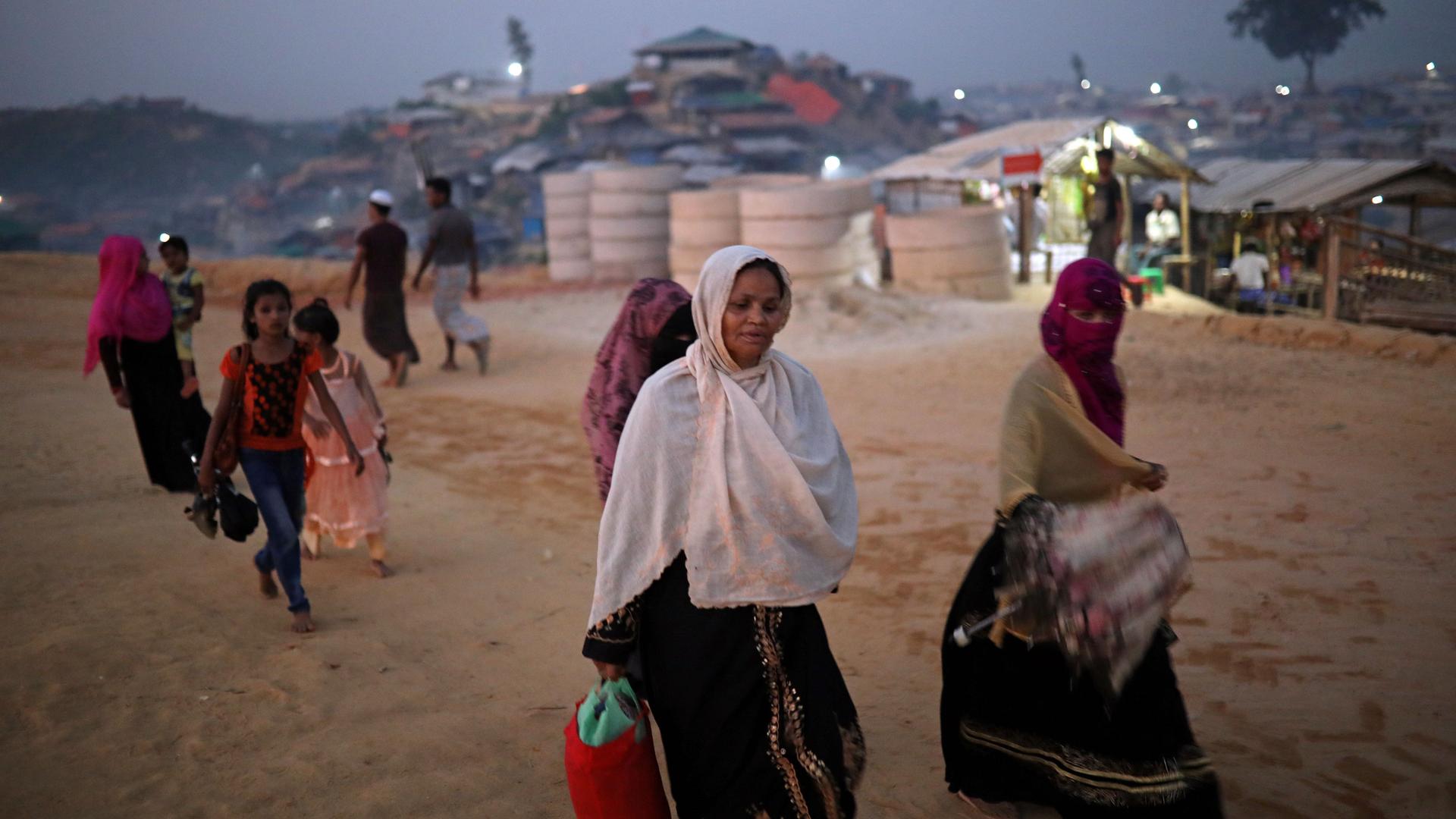While cases of COVID-19 in Bangladesh have surpassed 1,200, none so far have been reported in overcrowded Rohingya refugee camps. Still, one refugee there, a mother named Chekufa Ra, speaking through an interpreter, described a feeling of overwhelming dread about what happens if there’s an outbreak.
Ra said clinics and schools have closed, and many volunteers are gone. It’s difficult to find food. And fear is rampant. The internet has been blocked, so many people don’t have basic information about the disease. There have been lots of rumors and misinformation about how the virus is spread.
Related: Racing to develop a drug to fight COVID-19
If there is an outbreak, the success of the response may depend in part on the status of women in the camps. That’s because women are the main caregivers when people fall ill — but they don’t usually have leadership roles in their communities.
“Within the overall structures in the camps, women are often not in decision-making positions. There are only 10 women police in the whole camp. But then at the same time, we see that there can be disproportionate impacts on women and girls.”
“And for that, we’re particularly concerned because the Rohingya community as a whole is quite conservative and patriarchal,” said Marie Sophie Pettersson of United Nations Women. “Within the overall structures in the camps, women are often not in decision-making positions. There are only 10 women police in the whole camp. But then at the same time, we see that there can be disproportionate impacts on women and girls.”
Even before the coronavirus, she said, girls and women were trafficked and forced into marriage. Since the lockdown, levels of domestic violence have spiked. And now, because women are the caregivers, they’ll likely be among the first infected.
“This COVID-19 crisis could have devastating impacts if we don’t prevent or mitigate the risks,” Pettersson said.
Related: Bolsonaro’s denial of coronavirus puts the country at risk
Genocide forced Rohingya to flee Myanmar in 2017. Nearly 900,000 people are packed into camps across Bangladesh. Ra was pregnant when she and her 4-year-old daughter walked for days to reach the camps in neighboring Bangladesh. She’s lived there now for three years with her husband and two daughters.
Ra said that before the genocide, many people in her family served as social workers and government officals, and she learned how to organize from them. Now, those skills have helped her take matters into her own hands. She’s leading a grassroots response to the COVID-19 crisis, building a network of 400 refugee women who are going door to door to educate people about the virus, and recruiting more women to help.
They’ve put together makeshift health clinics, and arranged transportation for people who might get sick. If an outbreak hits, Ra said, her group of women will be prepared to respond, no matter what the men say.
Related: Mutual aid groups respond to double threat of coronavirus and climate change
Humanitarian workers are also working to frantically produce videos and podcasts about how the infection spreads. Louise Donovan, of the Office of the UN High Commissioner for Refugees in Bangladesh, explained, “Not everybody is literate and there isn’t a written Rohingya language, also — so, it’s quite challenging.”
She said they’re also expanding medical and isolation facilities as much as possible, and taking steps to improve hygiene. “So, just huge distributions of soap across the camps, establishing hand-washing facilities at all distribution centers and every communal facility in the camp.”
“Everybody is looking for additional capacities and resources at the moment. I think at this time, it’s very clear that this is a global problem and no population can be excluded from that.”
There’s some capacity for COVID-19 testing, Donovan said, but more medical equipment and resources are needed. “Everybody is looking for additional capacities and resources at the moment,” she said. “I think at this time, it’s very clear that this is a global problem and no population can be excluded from that.”
The story you just read is accessible and free to all because thousands of listeners and readers contribute to our nonprofit newsroom. We go deep to bring you the human-centered international reporting that you know you can trust. To do this work and to do it well, we rely on the support of our listeners. If you appreciated our coverage this year, if there was a story that made you pause or a song that moved you, would you consider making a gift to sustain our work through 2024 and beyond?
